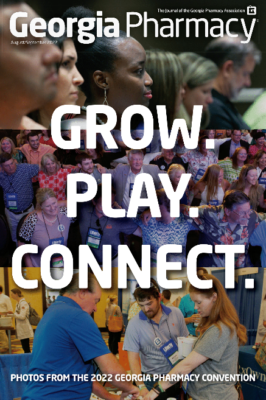Genes and SSRIs, hospitals aren’t brushing, superbugs love Covid, and more
14 Jul 2022
Posted by Andrew Kantor
More hospitalizations, more infections
Covid ripple effect: Thanks to more and longer hospital stays by Covid-19 patients, not only did the number of hospital-acquired infections jump more than 15% from 2019 to 2020, but …
U.S. deaths from bacteria resistant to antibiotics, also known as ‘superbugs’, jumped 15% in 2020 as the drugs were widely dispensed to treat Covid-19 and fight off bacterial infections during long hospitalizations, enabling the bugs to evolve.
Nearly 30,000 Americans died during the pandemic not directly from Covid-19, but from antimicrobial-resistant infections — and “nearly 40% had acquired the infection in hospital.”
Easy pneumonia prevention
One reason for all those hospital-acquired infections? Poor dental care.
Hospital patients not getting their teeth brushed, or not brushing their teeth themselves, is believed to be a leading cause of hundreds of thousands of cases of pneumonia a year.
Part of the problem: “[T]he vast majority of the tens of thousands of nurses in hospitals have no idea that pneumonia comes from germs in the mouth.” The simple solution: Brush patients’ teeth.
Are you ready for yet more immunizations?
With Omicron BA.5 spreading and giving more people a second (or even third) round of Covid, the CDC is urging people to get a second booster if they’re eligible — and soon.
And that’s why this is the time to be sure your immunization skills are honed and ready.
Technicians: GPhA”s Immunization Delivery Training for Pharmacy Technicians (worth 6.0 hours of CE!) is coming up fast — Saturday, August 20 from 9:00 am to noon at GPhA’s World Headquarters in Sandy Springs. Click here for the details.
Pharmacists: APhA’s Pharmacy-Based Immunization Delivery certificate training program — and the 20 hours of CE you get for completing it — starts Sunday, August 21 from 8:00 am – 5:00 pm also at GPhA’s HQ. Click here for the details.
HHS advises pharmacists
Trigger warning: This is a story about abortion. Remain calm because it’s important.
To put this as briefly as possible, so we can move on to the next story: HHS is reminding pharmacies that methotrexate and misoprostol are not always used for voluntary abortions — there are important medical reasons a woman might need one.
Refusing to dispense it, HHS says, or “making determinations regarding the suitability of a prescribed medication for a patient,” might put you on the wrong side of a discrimination claim.
Narrowing down the antidepressants
Got a patient with depression? Antidepressants are hit-and-miss, and after trying half a dozen SSRIs and SNRIs, patients might be a bit … frustrated.
A bit of advice you can give: Genetic testing might make a difference. That’s what a study just published in JAMA found: For a notable number of cases, using genetics to screen out what (probably) won’t work and focus on what (probably) will can cut that frustration down.
“The results were not a slam dunk, and in fact, an important outcome of the study is that only about 15% to 20% of the patients had genes that would significantly interfere with the prescribed medication. But I think the results favoring a positive effect on treatment, although small, will encourage providers to test patients and get this genetic information.”
A new nasal spray
A year ago, the FDA approved Bayer’s Astepro nasal spray antihistamine (basically low-dose azelastine). And now the company says it’s available over the counter.
It works fast like a pill, but it’s as fun to use as a spray. It’s not a steroid, but it can be used along with one like Flonase (aka fluticasone).
Coming to your mailbox soon
12 pages of photos from the convention (and only a few of them are posed)!



